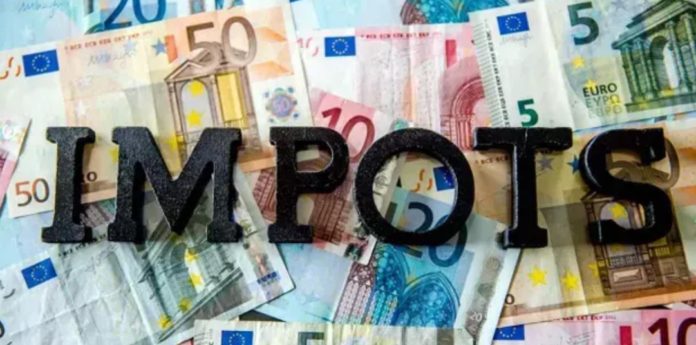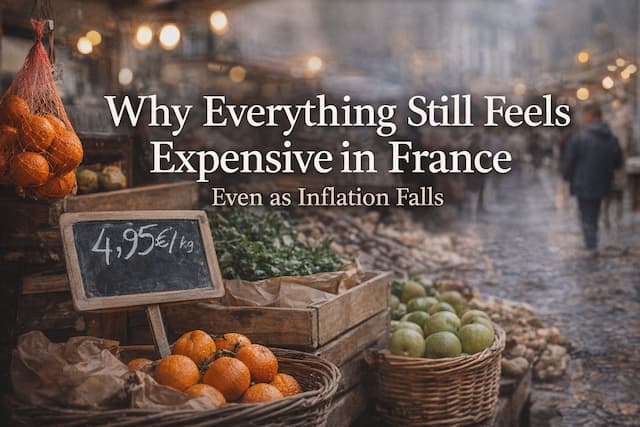In 2022, the French have Never Paid so Much Tax for 30 Years

TAXATION: The French, households as well as businesses, have paid more taxes than they have ever done for 30 years.
The French, households as well as businesses, have paid more taxes than they have ever done for 30 years. Mandatory tax levies in 2022 reached 45.2% of GDP in 2022, i.e. 0.9 points more than in 2021 when the rate was estimated at 44.3%. In euros, this represents an increase of 86.4 billion, to reach 1,194 billion against 1,107.7 billion in 2021, according to the latest figures published in the economic, social and financial report (RESF), published on October 4, 2022 .
In its report for the previous year, the government forecast a drop in the rate of compulsory levies in 2022 to 43.5% of GDP. It is finally a new peak after that of 2017 (45.1%) that the RESF revealed.
In its report, the government explains “mainly this sharp increase by the dynamism of compulsory levies, with spontaneous growth (+8.2%) higher than that of GDP in value (+5.6%), due in particular to the dynamism of certain macro-economic bases (wage bill, jobs subject to VAT, company profits)”.
According to the annual report on tax revenue from the OECD (Organization for Economic Co-operation and Development), France is the second of the 36 countries studied where the tax burden was the highest in 2021 (tax/GDP ratio of 45.1), behind Denmark (46.9%).
The corporate tax, VAT, and IRG are the source of the most significant increases. Additional revenue from corporation tax reached 12.7 billion. Income taxes generated 8 billion more. VAT is the source of the largest increase, located at 18 billion. Value-added tax is thus the source of 200 billion euros in 2022, “thanks”, in particular, to inflation and rising prices. This is also the main cause, along with the drop in GDP growth, of the rise in the PO rate, explains the think tank Ifrap .
Who collects all these tax revenues? Social Security is the big beneficiary, recovering 45 of the additional 86.4 billion euros. The State comes in the second position, recovering 34 billion. Local authorities take, for their part, 8 billion euros.
Compulsory taxes thus reach a historic record at a time when, paradoxically, several sensitive sectors, such as that of health or even justice, are suffering from lack of resources. At the end of November, the magistrates went on strike to denounce their working conditions and demand additional human resources. Several courts across France require dozens of additional judges and clerks to respond to the growing number of cases.
In early 2022, hospital staff demonstrated their dismay in the streets all over France to demand salary increases, but above all “means” and “positions” for the public hospital washed out by the successive waves of Covid-19 and stopping bed closures. Media have also reported resignations due to a lack of resources and the deterioration in the quality of service provided to the public hospital, aggravated by the suspension of non-vaccinated caregivers who are still suspended.
What to recall, the question, in January 2021, of Charles Gave , essayist and financier, who wondered in the face of the extremely high rate of compulsory levies in France, “where did the money go (…) Why, today, the police do not work, justice does not work, the army does not work, diplomacy does not work, health does not work (…) and we have never had such incredible social levies”.
The director general of the iFrap Foundation, Agnès Verdier-Molinié, estimated in a forum that “the situation is all the more distressing as the government could have limited, this year, the over-taxation of the French and their companies. It was possible and fair to review the income tax scale based on real inflation (around 7% in the harmonized consumer price index from November to November) and not 1.5 % as decided”.
She regrets that “the executive is too tempted to collect the additional revenue and spend it on energy checks, back-to-school checks, etc. rather than lowering taxes”. Agnès Verdier-Molinié believes that “this is likely to last” since in the 2023 budget there is a revaluation “of the cadastral bases and therefore the property taxes of households and businesses by 7% while capping rents at + 3.5%”. “France is not done with tax records. Tax bills will continue to soar,” she concludes.
Enjoyed this? Get the week’s top France stories
One email every Sunday. Unsubscribe anytime.


